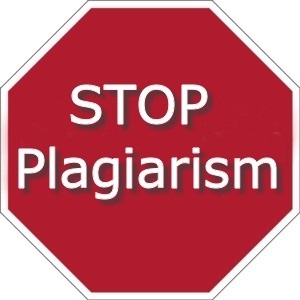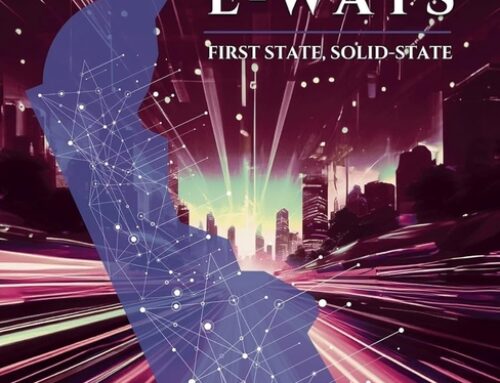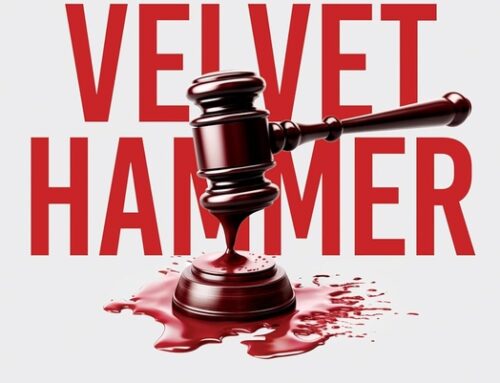
Having reviewed as much non-fiction as I have, you are bound to come across those who have “borrowed” other people’s work and not given them credit for it. It doesn’t happen often in traditionally-published works, but it does happen. As a green reviewer early on, I missed one that was a direct rip-off of another authors work. It was embarrassing, to say the least.
Plagiarism happens in many genres of non-fiction. Older material is out of print or in limited issue and someone thinks no one will notice. These titles can be run through software that checks for plagiarism and have been found to not be “properly attributed.” Publishers are spending money on software that specializes in tracing work to identify plagiarized material, because it will cost the publisher heavily in dollars and in reputation if it is discovered they missed a plagiarized work and allowed it to get out on the open market.
My own recent experience with some plagiarized material turned up an author who, when discovered and rejected by a mainstream publishing house, turned to self-publishing their work to circumvent the process. They skimmed off the Internet and produce e-books of gleaned material, and are selling it to the unsuspecting public. And while we can point it out, there isn’t much else we can do.
When the self-publishing firm was made aware that the material was indeed plagiarized, it was removed. But the works reappeared at the same publisher. It probably would continue even if it was mentioned to the publisher again. And, of course, with all the various self-publishers out there, this material could continue in publication regardless of how often it is identified and removed. All the plagiarist does is move on to another self-publisher.
This also happens with fiction. While we can allow that, say, works on vampires will include similar treatment of the vampire to have it fit the description, how about the love scene that is just about word for word from an older work, or from a different work of fiction all together, slapped into the vampire book. Love scenes, plots; oh there is so much that can be gleaned from other well-known authors and then plugged into a fiction e-book and sold on the Internet with no one really checking.
There are some real questions that are going to rise in the self-publishing industry. As these incidents are brought to the surface, and eventually make the front page of the New York Times book section, how is self-publishing going to stand up to accusations of fraud and/or plagiarism? We want this field to open doors for authors who would never have been given a chance to present their work to the public because the publishing houses don’t see enough money in sales or do not have enough funding to publish all the really great books out there. And we have the ultimate question of how is the public going to know if the work is just a rip off of another person’s work?

The person who is going to be in a position to even get a hint of this is the reviewer. An experienced reviewer in a particular genre will notice a change in writing style within a particular novel. They may be familiar with the various authors within that genre and know their styles and the content of some of the better known authors. It very well may be the reviewer who recognizes a style or a scene or something familiar that will put them onto a possible case of plagiarism.
Having discovered plagiarized work and exposed it in the past, I also know what dishonorable authors (read: con-artists) will do when they have their backs against the wall. Some of them lash out and attack viciously. Others just take the money and run. Someone has to say something, and there is never a “polite” way of saying “the material in this book is copied from other copyrighted sources [insert sources here] and therefore is plagiarized.”
But who do you complain to? What agency will even care? And will it be worth it to the author who has been plagiarized to pursue this? And as a reviewer, do we also become the plagiarism police? It is not something I really want as part of my job description.
What is needed is a service that will check all books issued (notice I said ALL books) and report these plagiarized works. What we also need are self-publishers that will use this service and remove titles that have been so indicated. Where would the funding come from? Well, I would suggest all the publishers involved, including big houses, would also benefit from this. It would probably boil down to pennies per book, but in the long run, it would protect the copyrights of legitimate authors, it would protect both publishers, self-publishers and vendors from issues with plagiarized work, and it would discourage plagiarism and copyright theft. And in the long run, give the public honest work.
I am sure a few services would be able to work in this field, specializing in particular genre, offering services to the industry. A standard could be set as to the percentage of the book that would be allowable to contain similar content. It is possible for us to quote popular ism’s and that will probably show up in many books at a particular time. But the industry could come with some guidelines. While we may not like the concept of regulation, it is always better that we regulate our own than have someone else mandate it for us.
The self-publishing field will suffer if we find it being used as a haven for pushing rehashed and in some instances identical copies of other people’s works. And self-publishing will be treated as “vanity” presses are treated; as a frowned-upon method of fleecing the public with hackneyed authors turning out junk. The legitimate self-published authors will suffer.
Update: Fast Company takes on the problem with plagiarism in erotica self-publishing:
This penchant for plagiarism shouldn’t surprise us. Self-publishing has become the latest vehicle for spammers and content farms, with the sheer volume of self-published books making it difficult, if not impossible, for e-stores like Amazon to vet works before they go on sale. In 2006, 51,000 self-published titles were released; last year there were 133,036 self-published books, and that number is destined to climb. Writing a book is hard. All those torturous hours an author has to spend creating, crafting, culling until nonsensical words are transformed into engaging prose. It’s a whole lot easier to copy and paste someone else’s work, slap your name on top, and wait for the money to roll in. This creates a strong economic incentive, with fake authors–Sharazade thinks it’s possible they are organized gangs based in Asia–earning 70% royalty rates on every sale, earning far more than a spammer could with click fraud. The new self-publishing platforms are easy to use and make it possible to publish a title in as little as 24 hours. There’s no vetting, editing, or oversight, and if your work is taken down you can always throw up more titles or simply concoct a new pen name and start over. There’s even a viral ebook generator that comes packed with 149,000 articles that makes it possible to create an ebook in minutes.
Legislation has been proposed that would give content holders more leverage in dealing with etailers: the Stop Online Piracy Act (SOPA). It would award copyright holders wide-ranging powers to run websites that host infringing material off the Internet without needing to acquire a court order. If it becomes law credit card companies could be forced to suspend financial transactions, search engines required to de-link ecommerce sites, and DNS providers made to hobble access. It’s the kind of law, well-intentioned as it might be, that could have serious negative repercussions, opponents say. No wonder Amazon, eBay, Facebook, Google, and Yahoo! have reportedly been considering a coordinated protest against it in the form of a blackout day.
There is, I believe, a simpler solution. Why not require an author to submit a valid credit card before she can self-publish her works on the Kindle? If an author, who could still publish under a pen name, were found to have violated someone else’s copyright Amazon could charge that card $2,000 and ban her from selling again. Amazon could also run content through one of the many plagiarism detectors that are available–such as Turnitin or iThenticate–before an ebook is put on sale.
Perhaps, though, Amazon doesn’t care if it sells plagiarized works; it benefits from the sale whether it holds back an author’s royalties or not.
Get an Editorial Review | Get Amazon Sales & Reviews | Get Edited | Get Beta Readers | Enter the SPR Book Awards | Other Marketing Services






















Boudica, I share your concern that self-publishing might provide cover for plagiarists. But I’m also interested to learn that some people are developing software to sniff them out. After reading your post and thinking about it, I realized that using computers to catch those pathetic individuals shouldn’t be difficult or expensive. The computer would just take any new writing and compare it word for word with everything previously written. (Isn’t Google trying to digitize everything ever written? Maybe we should applaud it, or anybody else who is making that attempt, for doing so.) The standards for possible, probable, and obvious plagiarism shouldn’t be difficult for reasonable people to agree upon. So writers, for a nominal fee, or no fee at all if they agree to their exposure to advertising, can gain a valuable link their prospective readers can click on and receive a respected organization’s certification that the writing they otherwise wish to read is genuinely new. Those of us who write honestly will have nothing to fear.
Indie editors are often the first line of defence. We usually see a manuscript before anyone else – we are even sent work for polishing before submission to the big 6.
We are uniquely equipped to pick up signs of plagiarism signalled by a number of diverse writing styles within a document, or parts of a document which require no editing at all.
Yeah, been there. It’s distressing to have to kick a manuscript back, lose a client and return a deposit, but there is no way any reputable editor wants their name on such a book.
I use a website called Grammarly.com. It’s great for not only grammar, but it highlights text that matches anything on the Internet or elsewhere. It also gives you the reference to add, if you need to give credit where credit is due. It’s somewhat helpful.